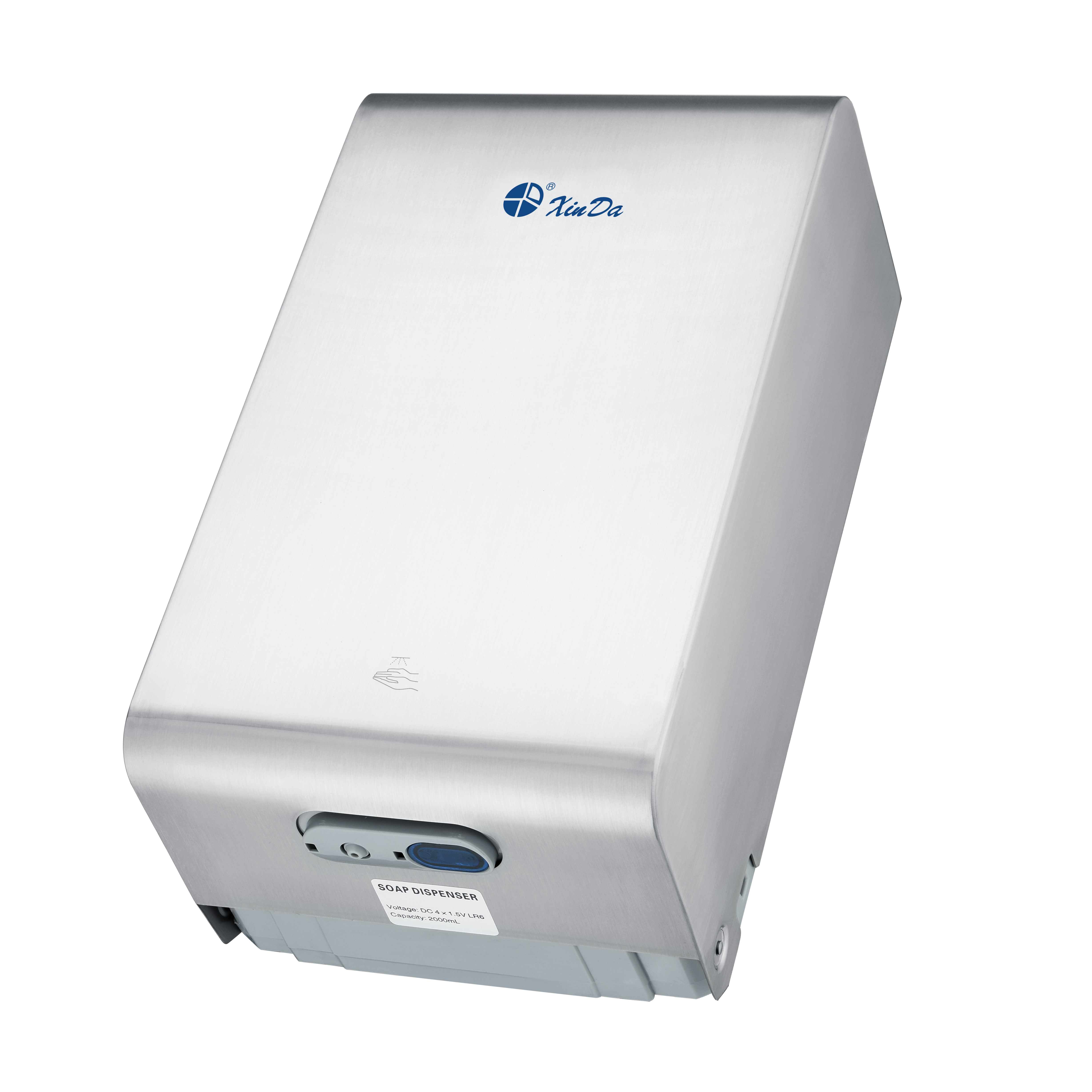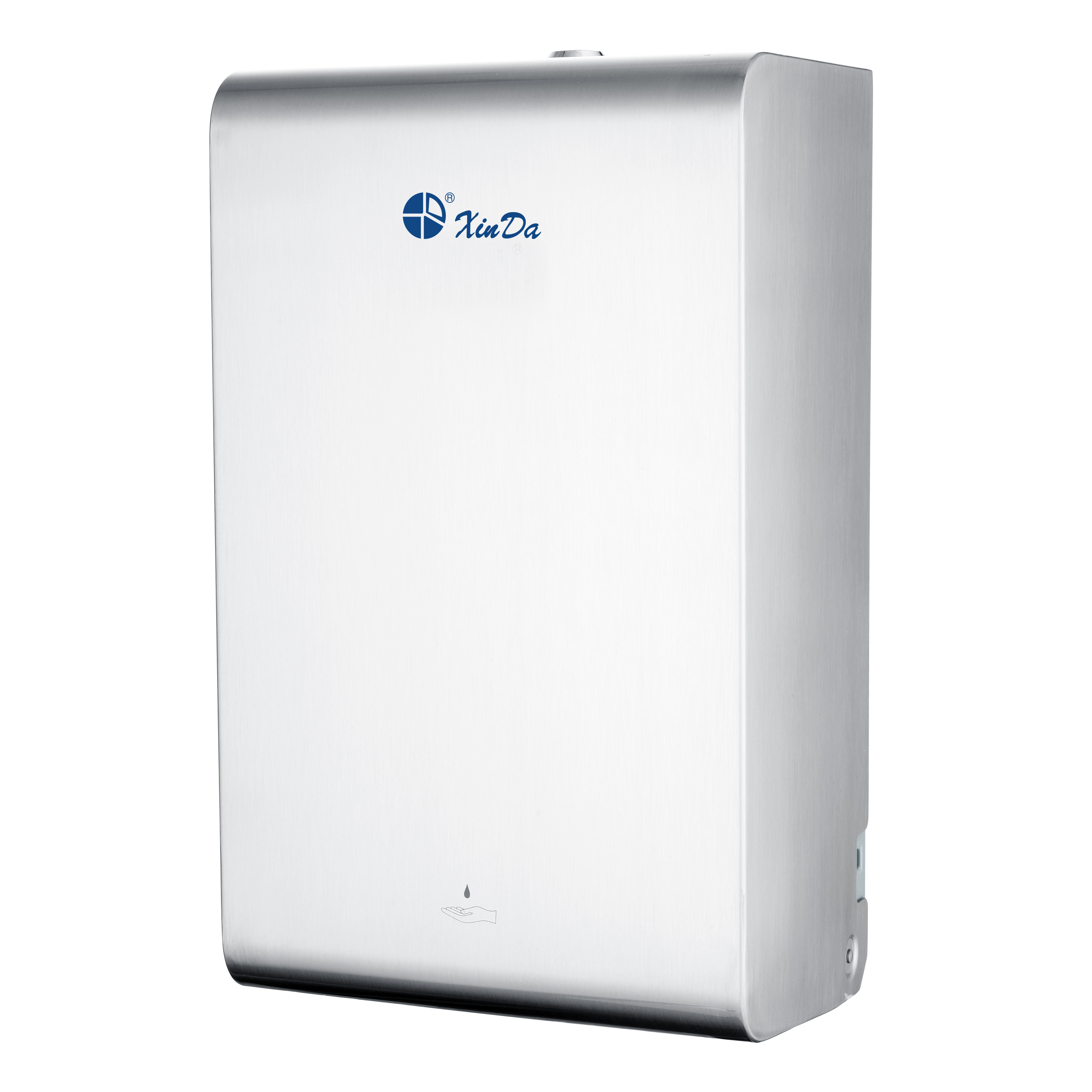- All
- Product Name
- Product Keyword
- Product Model
- Product Summary
- Product Description
- Multi Field Search
 English
English English
EnglishViews: 0 Author: Site Editor Publish Time: 2025-04-12 Origin: Site








Maintaining impeccable hygiene standards is crucial in the healthcare and food industries. Anyone working in these environments knows how quickly cross-contamination or inadequate sanitation can lead to severe consequences. With hygiene playing such a pivotal role, even the most seemingly trivial tools, like soap dispensers, demand significant attention. Enter stainless steel soap dispensers—a solution designed to promote cleanliness, minimize contamination risks, and endure robust environments.
This article dives into the advantages of stainless steel soap dispensers, their impact on hygiene practices, and why they’re a must-have in critical industries like healthcare and food service.
Healthcare facilities and food preparation environments operate under strict health and safety guidelines due to the high inherent risk of contamination.
○Healthcare:
Hospitals and clinics face constant exposure to harmful microorganisms, from pathogenic bacteria to viruses. Proper hand hygiene can be the frontline defense against healthcare-associated infections (HAIs). The CDC reports that effective handwashing reduces the spread of these infections significantly.
○Food Industries:
When preparing and handling food, even slight lapses in hygiene could lead to contamination, outbreaks of foodborne illnesses, or the failure of mandatory inspections. According to WHO, unclean hands are a major contributor to foodborne diseases globally.
This is where stainless steel soap dispensers fit into the picture as a subtle yet powerful tool to enhance hygiene.


Stainless steel soap dispensers are built to last. Unlike plastic dispensers, which can crack or degrade over time, stainless steel maintains its integrity despite long-term use in high-traffic areas. Its resistance to wear and tear ensures it can withstand heavy, repeated interactions typical in busy healthcare and food environments.
For example:
○Automatic stainless steel soap dispensers remain functional and aesthetically pleasing for years, even in humid or wet conditions.
○Wall-mounted models boast sturdy construction, preventing damage from frequent use or accidental bumps.
Stainless steel has a naturally smooth, non-porous surface, making it incredibly easy to clean and sanitize. Unlike plastic surfaces, which may absorb residues or oil, stainless steel resists smudging, dirt buildup, and biofilm formation.
This surface allows for regular cleaning with sanitizing agents without degrading the material. Proper maintenance of soap dispensers helps limit the accumulation of harmful bacteria and ensures soap quality remains uncontaminated.
Corrosion is a major concern for cleaning equipment, as rusty surfaces can harbor bacteria and compromise hygiene efforts. Stainless steel, particularly grades like 304 and 316 stainless steel, is highly resistant to rust and corrosion, even in areas frequently exposed to water or cleaning chemicals.
Additionally, stainless steel’s impervious exterior ensures it’s less likely to absorb contaminants, keeping the soap inside clean and safe for use.
Many stainless steel dispensers now come equipped with touchless or automatic features. These reduce physical contact, preventing cross-contamination as users aren’t required to press a pump or touch any surface directly. Motion sensors dispense just the right amount of soap whenever needed, aligning perfectly with modern hygiene requirements.
Touchless functionality has proven essential in industries where cleanliness is paramount:
○Healthcare staff can swiftly clean their hands between patient consultations without worrying about touching contaminated surfaces.
○Food handlers can ensure soap dispensers remain untouched, which is critical when transitioning between handling different ingredients.
Stainless steel is 100% recyclable, making it a sustainable choice compared to single-use plastic alternatives. Businesses aiming to balance operational efficiency with environmental responsibility can view stainless steel soap dispensers as an eco-friendly investment while also reducing their long-term waste footprint.
○Hospital Environments:
Hospitals deal with high patient turnover, which results in substantial soap usage. Stainless steel dispensers cater to these demands thanks to their durability and ability to hold large soap capacities. Touch-free models contribute to stopping germ transmission between healthcare workers and patients.
○Clinics and Medical Centers:
Clinics often replace manual soap pumps with automatic stainless steel dispensers to enhance patient and staff safety. These dispensers, when paired with hand sanitizer, create a comprehensive hand hygiene station.
○Emergency and Operating Rooms:
These critical spaces demand the highest hygiene standards. Stainless steel dispensers placed strategically in ORs ensure soap accessibility while maintaining sterility.
○Restaurants and Cafés:
Commercial kitchens thrive on speed without compromising hygiene. Stainless steel soap dispensers enable frequent handwashing practices to prevent food contamination.
○Food Manufacturing Plants:
Workers in food processing plants benefit significantly from touchless dispensers, which help maintain sterility during food handling and packaging.
○Catering Services:
Catering businesses frequently work in dynamic environments and rely on portable, durable tools. Stainless steel soap dispensers suit this purpose, balancing hygiene with practicality.
Stainless steel dispensers offer a sleek, modern appearance that seamlessly integrates into professional settings. Whether used in a high-end restaurant or a hospital lobby, they signal cleanliness and professionalism to both staff and visitors.
While the initial investment may be higher than plastic alternatives, stainless steel dispensers save money in the long term. Their longevity and durability reduce the need for frequent replacements, and their reliability ensures soap isn’t wasted due to constant leaks or malfunctions.
○Capacity:
Select models that align with daily soap usage. High-capacity dispensers work best in high-traffic environments like hospitals and manufacturing plants.
○Mounting Options:
Wall-mounted dispensers save space and keep countertops clutter-free, while freestanding models can be moved to accommodate dynamic environments.
○Soap Type Compatibility:
Ensure dispensers can handle the soap type in use (e.g., liquid, foam, or gel-based soaps).
○Automatic or Manual:
While manual dispensers are cost-effective, automatic models offer added hygiene and convenience, particularly for touchless compliance.
It’s clear that stainless steel soap dispensers are more than just a hygienic choice; they’re a long-term investment in safety, efficiency, and sustainability for the healthcare and food industries. Their ability to withstand rigorous use, resist contamination, and complement modern sanitation standards makes them indispensable.
Whether you operate a hospital, medical clinic, restaurant, or food processing plant, upgrading to stainless steel dispensers could enhance hygiene practices and reduce cross-contamination risks.
Looking to elevate hygiene in your business? Explore our range of stainless steel soap dispensers designed for healthcare and food industries. Secure your solution now and witness the difference firsthand.